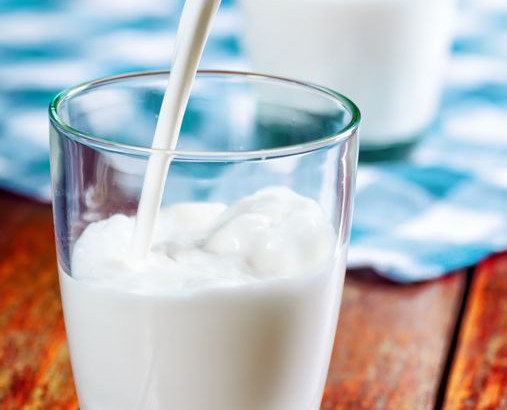Is plant milk for me?
mis à jour le 14 July 2015 à 18:35Soy, rice and almond milks have invaded organic supermarket shelves. Their health and dietary benefits seem to make them serious competitors to cow's milk. So should we make the switch…or not?
Packed in white cartons and sometimes fortified with calcium, vegetable juices are no longer trying to hide their ambitions to become a real alternative to cow's milk… a proposal which is attracting more and more people, especially those who are lactose intolerant. Though allergy to proteins in cow's milk is rare in adults, intolerance is very common. Indeed, with age, we produce less lactase, the enzyme that helps digest lactose. When not properly broken down, sugars irritate the digestive system causing abdominal pain, bloating and diarrhoea.
We thus tend to turn away from traditional milk to look into other options. Some brands now offer low-lactose milks which are much easier to digest. Another trend: Vegetable milks. From cereals and oilseeds, the latter are devoid of lactose and rely on their low fat content to replace the milk in the kitchen or with breakfast cereals. But they have one weakness – they do not contain calcium, essential for healthy bones. Wherein comes the idea of manufacturers to offer enriched products, in order to become direct competitors of milk. Should we succumb or not?
YES, IN THE CASE OF LACTOSE INTOLERANCE
Take one or two glasses of calcium-fortified vegetable juice with 1 serving of cheese and 1 of yoghurt to balance intake of calcium and amino acids. Do not panic: dairy products are low in lactose, and usually do not cause digestive problems.
YES, WHEN MONITORING YOUR CHOLESTEROL
Trying to limit your intake, or a bout of high cholesterol? It is better to limit the consumption of dairy products rich in lipids (2/day at max). You can opt for juices from grains rich in plant proteins, which tend to increase the “good” blood cholesterol (HDL) and thus preserve our cardiovascular health. On the contrary, go slow with coconut milk, super rich in fat and calories.
WITH MODERATION, FOR PATIENTS WITH A HISTORY OF HORMONE-DEPENDENT CANCER
The phytoestrogens found in soy milk are at the heart of a controversy that has lasted for years. Capable of mimicking the effects of natural hormones, they are suspected to drive up the risk as well as promote recurrence of breast cancer in genetically susceptible individuals. We should in this case turn more toward other juices and, if in doubt, seek the advice of your doctor.
YES, IF I'M VEGAN
It is difficult to vary tastes and textures when you do not consume meat or its derivatives (eggs, honey, milk...). Fortunately, there are many types of vegetable milk (almond, soy, oats, rice, hemp, coconut...) and these help restore creativity and new flavours in our recipes.
NO, FOR MY BABY
Within the first year, paediatricians are strict – only breast or infant milk, specially formulated according to age, is suitable for infants. In case of allergy to cow’s milk protein, we can consult a paediatrician to find a solution. After one year, we can try out vegetable juices meant for children, provided they are not abused, and ensure that they consume enough dairy products at the same time to meet their calcium needs.
Léa Goudou




